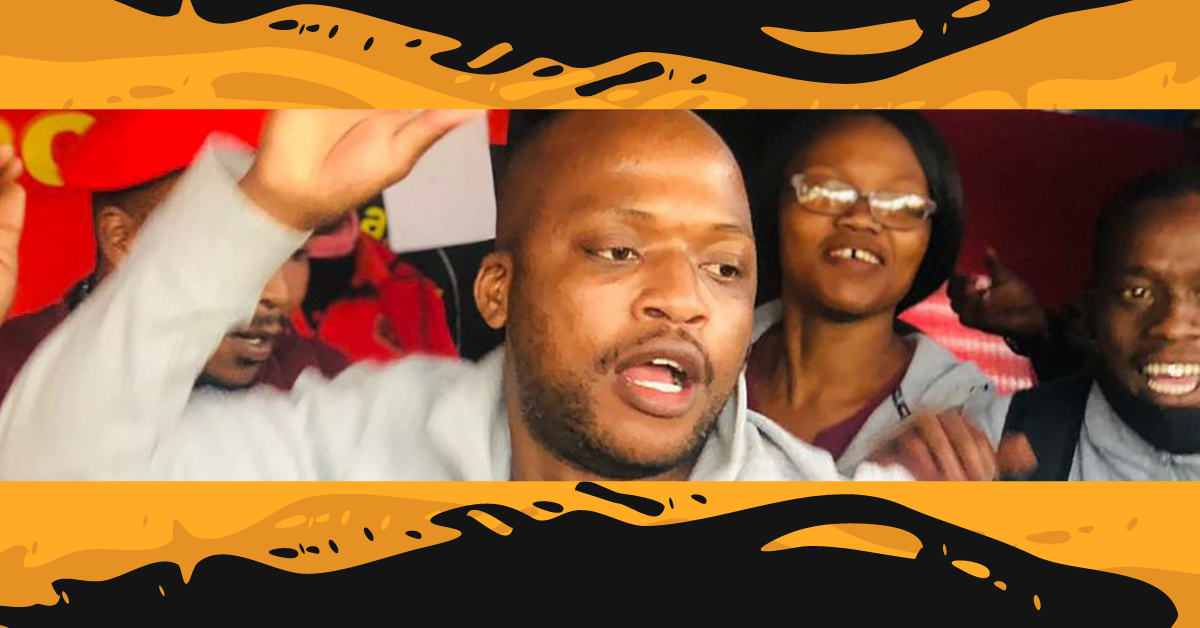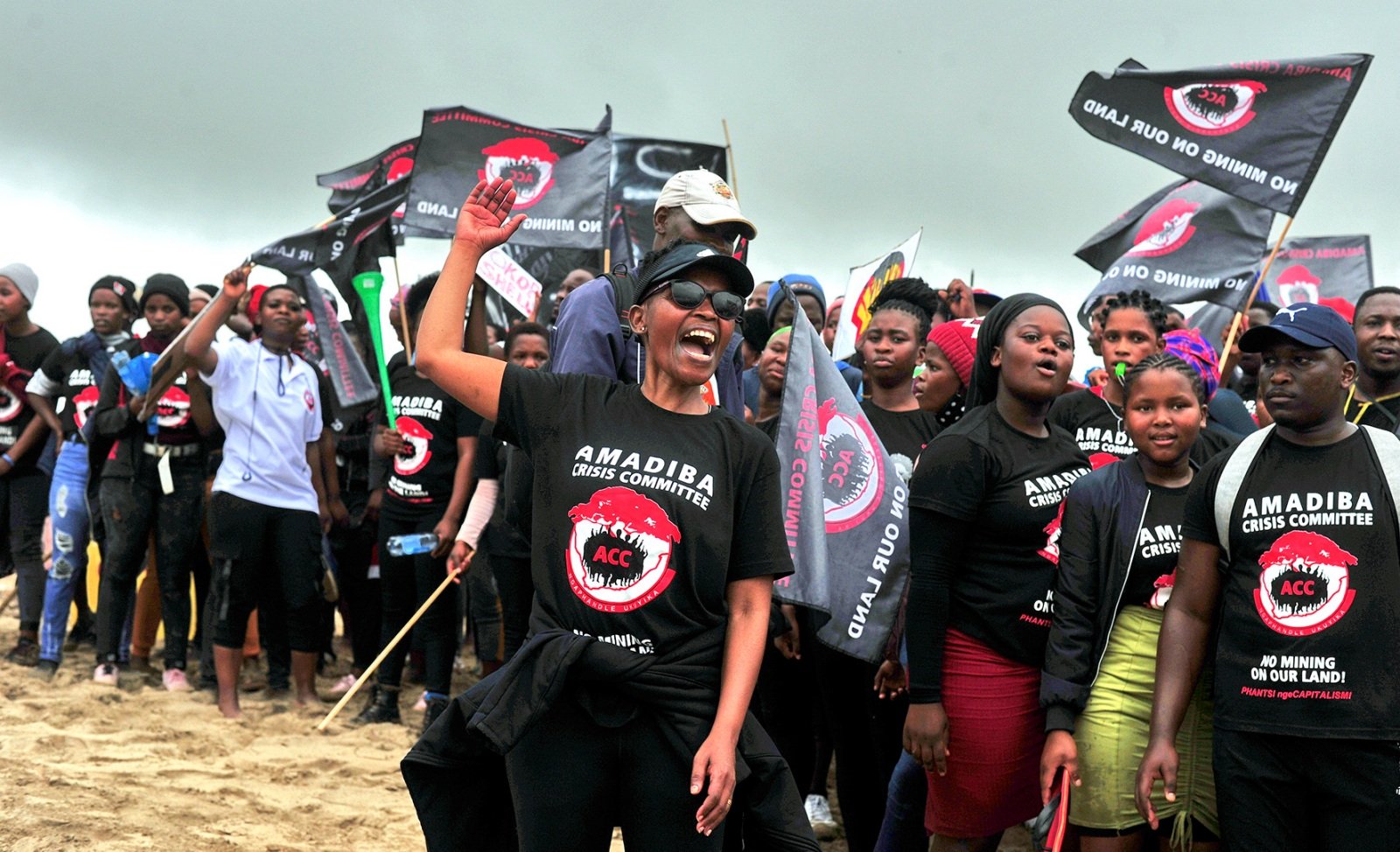Guest post by Mumbi Nkonde. Read more about them in their bio below.
On May 28th Africans in the Diaspora hosted the Moving Money, Shifting Power. Here Mumbi Nkonde writes on the journey our three powerful speakers took us and how it impacted them and their work directly.
Our three speakers Luam Kidane (former Vice President of Global Programs, Thousand Currents), Caroline Kouassiaman (Initiative Sankofa d’Afrique de l’Ouest) and Tynesha McHarris (Movement for Black Lives) guided us through an analysis of how capitalist-imperialist systems operate to create wealth accumulation and concentration of power, and the role philanthropy plays as a site of this power.
All three speakers have extensive experience of resource mobilization and grounded us in their practices of challenging the philanthropic sector into shifting resources to grassroots and movement actors, through emerging systems of collective power and accountability. A critical question explored throughout the discussion was how funders can support the work of movement actors without asking them to compromise their values and ways of organizing. Within this thoughtful exchange, some other discussions lingered, such as how to straddle being or coming from movement work and then encompassing funder roles and spaces.
Luam, the first speaker, began by situating the broader context of wealth accumulation, which in turn creates the world of philanthropy. The revealing statistics on the wealth pouring out of African nations included that, according to the report ‘New Colonialism’ by War on Want, as many as 101 companies (25 of which are incorporated in tax havens) listed on the London Stock Exchange have mineral operations across 37 African countries. They control over $1.05 trillion US dollars in Africa through five commodities; oil, diamond, coal, platinum and gold. This humbling grounding situated the discussion in a continued struggle against colonial and imperial practices.
Having established the context of how wealth is accumulated, Luam gave us a snapshot of how that same wealth then flows through philanthropy. According to research done by Human Rights Funders Network, Candid, Ariadne, and Prospera , around $6.7 billion US dollars is given out in funding to human rights work worldwide, with a staggering 62% of that funding going to North America and Western Europe, whilst only 25% of funds go to Asia & the Pacific, the Caribbean, Central and South America, Middle East, and Africa combined. In short, wealth continues to be amassed through resources in the global south, only to then be majority spent in the global north. Philanthropy meanwhile claims to be in service of values such as equality and justice.
Furthermore, when we look closely at what kinds of organizations are funded, we see that only 8% of the philanthropic $6.7 billion US dollars goes to grassroots organizing, and within that even less to movement centered work. Luam went on to re-articulate clearly and firmly why donors must fund movements stating, “we know that change is driven by movements, people power and not policy”. This serves as an important reminder that policy has always responded to demands from the collective mass who are aiming to shift power and change cultures. She went on to outline key steps funders must start to make:
-
Move more money, faster and with as little bureaucracy as possible
-
If possible move money directly to movements
-
If your organization is still having a hard time with that then think through what place your organization occupies in the funding ecosystem and how you can move money strategically funding organizations, like intermediaries for example, that work directly with movements.
I was reminded that many of Luam’s points are part of a loud chorus of ideas and practices that are in circulation, explored in this piece “Why we must overhaul the funding of social movements”. The question no longer seems to be why or even how can grassroots and movement work be funded, but rather why are funders moving so slowly in response to this congruent chorus?
Tynesha spoke primarily from her role supporting the fundraising for the Movement for Black Lives (M4BL) and also brought in some examples from the Black Feminist Fund, of which she is a co-founder. Tynesha continued on this movement centred discussion, exploring what then happens in practice when, as movements, you are able to channel resources but are confronted with donors’ attempts to compromise your values and analysis.
She described that M4BL is a seven year old ecosystem working to coordinate and move together in formation against the violence on Black lives and to re-imagine Black futures. As a network they have a strong anti-capitalist framing which for her is in deep conflict with the roots and processes of philanthropy. Tynesha laid out some steps for how they have tried to navigate these tensions, through making their own demands and asking questions of donors such as:
-
The current rules do not defend Black lives. What rules are you prepared to break to defend Black life?
-
Demanding white wealthy families/individuals/foundations commit to ten year strategies to fund the ecosystem, without arduous demand for reporting.
-
Demanding that wealthy individuals make their personal commitment to reparative justice.
Listening to her express the courage and truth of these demands was powerful, especially in a conversation about shifting power. There was clarity to M4BL’s position and vision on how we might begin to shift power dynamics in the relationships between movements and funders. This, combined with Tynesha’s storytelling of her dreams for the Black Feminist Fund, were the moments in the conversation where I felt a sense of resonance and connection. I was reminded that this work is not just about the head but often demands that we are present with our whole beings, hopes, fears, dreams and all.
Throughout the discussion, there was a call for commitment to long term deep solidarity and partnership, not charity. Caroline Kouassiaman’s work at Initiative Sankofa d’Afrique de l’Ouest (ISDAO), an LGBTQI led organization based in West Africa, embodies these framings. She gave her case study in developing new funding mechanisms rooted not in money but political vision. She described how ISDAO is working with participatory and consultative practices to understand the priorities for LGBTQI communities. Crucially, she also broke down how they’ve created new decision making centers which are connected to those on the frontlines and always accountable to them. Whilst traditional philanthropy tends to revere objectivity or distance as a practice, ISDAO holds activist’s lived reality as an expertise, and their closeness as valuable.
The Q and A discussion further explored the practices and policies which are crucial for anyone in this work to take note of. The gifts of this discussion came from listening with openhearted intention to how these three Black women are navigating mainstream philanthropy. Not only are they moving money but they are also trying to support work which aims to create new centers of power, a power that is built from below.
We are rightfully left with questions about our own practices and the one which came to mind for me was ‘how are movements themselves changed by receiving funding?’ In my own experiences at Black Lives Matter UK after receiving £1.2 million in donations from a crowdfunder, calls for accountability on how the money would be spent were heavily debated. Attacks from the media, state and anyone with a twitter account created the most challenging and oppressive conditions for thoughtful decision making.
There can never be too many spaces for shared learning and discussions as I was able to experience in this necessary series.
Mumbi Nkonde is a Zambian born community activist, now based in London, where they work at the intersections of anti-racism, migrants rights and climate justice struggles. Previously they worked for the participatory grant giver Edge Fund and have recently taken on the role of Grants Officer at JRCT.
You can watch Moving Money, Shifting Power back in full here.




